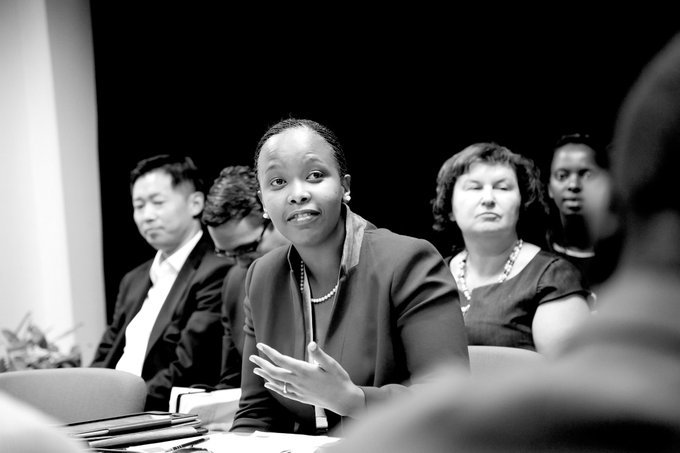While the trio of South Africa, Kenya and Nigeria are busy jostling for the position of top tech funding destination year on year amidst economic headwinds and poor governance indices, Rwanda is steadily rising as the country with the most profitable commercial hub, thanks to its very impressive ease of doing business environment.
Unlike South Africa occupying the 82nd position, Kenya at 61st and Nigeria at 146th, Rwanda is ranked 29th globally in the World Bank’s annual ‘Doing Business Report’. Aside from its strides in ease of doing business, the country once scarred by genocide, now also has a lenient visa policy that has put it miles ahead of peers in investors’ estimation.
Much of that accolade goes to the work being done by the Rwanda Development Board under Clare Akamanzi. The Ugandan-born Akamanzi may not be Rwanda’s minister of information and communication technology (ICT), but in her capacity as the chief executive officer of Rwanda Development Board, she is arguably one of the most influential public officials in sub-Saharan Africa in terms of her efforts to position the country as the innovation hub of Africa.
Under her stewardship, Andela, which originally launched in Nigeria, announced it was opening a pan-African tech hub in Kigali and moved quite a significant part of its major operations to the capital city.
“In Kigali, we have found a location that makes travel to-and-from other African countries seamless and also has modern and connected infrastructure we require to collaborate with a global workforce,” said Jeremy Johnson, CEO of Andela during the opening of the hub in Kigali.
Similarly, CcHub, one of the pioneers of Nigeria’s innovation centers, also launched its new design lab in Rwanda. The lab has since nearly become its central base of operations as the company now holds most of its major meetings there. For instance, the lab played host to the first ever Technology & Creative Industry ecosystem meetup on AfCFTA which Akamanzi alongside Oby Ezekwesili, former vice president of the World Bank group on Africa region, attended.
Born in Uganda to Rwandan refugee parents in 1979, Akamanzi probably understands a few things about negotiation and transformation. She began her career in 2004 in Geneva, Switzerland at the World Trade Organisation (WTO) headquarters. The government of Rwanda appointed her as a diplomat and special trade negotiator at the WTO. later, she transferred to the Rwandan embassy in London, as the commercial diplomat. She was appointed as CEO of Rwanda Development Board in 2017. Here we highlight some of her qualities that could come in handy for the incoming minister of ICT.
Prioritize goal-setting
As a public servant and a cabinet member, one of the things Akamanzi understood early enough – which Nigeria’s incoming minister of ICT can borrow a leaf from – is goal-setting.

“We didn’t have the natural resources to finance our development but we had the vision. Our vision is to build Rwanda as an entry point for everyone who wants to do business in Africa,” she said during the AfCFTA meetup on Thursday, 15 August 2019. “We said we were going to be a middle-income country and become competitive in some areas.”
Eyes on quick fixes
According to the CEO, “We didn’t have the big market, but knew what will make us different is how quickly and well we respond to businesses.
“We decided to isolate things that we felt we had control over and things that we didn’t have control over. For instance, if we wanted to build an airport that could contain 5 million people, we didn’t have the means to do that immediately, but we had the means to become efficient as a country for us to be able to deliver services quickly, for us to become competitive in the efficiency side of government. These were something we thought was in our means.”
Akamanzi understood the strength and weakness of her country. She also knew what needed to be done both in the short term and in the long term. Her fixation and communication of the goal contributed to German auto manufacturing company, Volkswagen setting up its first African car-assembly plant in Kigali. The $20 million operation is expected to integrate a mobility solution that offers cas sharing and ride-hailing systems.
Her ability to see the future of Rwanda also meant some risks were necessary.
“We wanted to build Rwanda as a country for proof-of-concepts, meaning an environment where you can prove your innovation and if it works, you can try it out anywhere in the world,” she said.
Source: businessdayng





